Israel carries out airstrikes in Beirut ahead of anticipated ceasefire deal
Hezbollah warns of retaliation to strikes on Beirut while Israel intensifies its campaign
Reuters
News Agency Partner
Reuters is a leading source of news and information, delivering fact-based reporting and expert analysis on international events and trends.
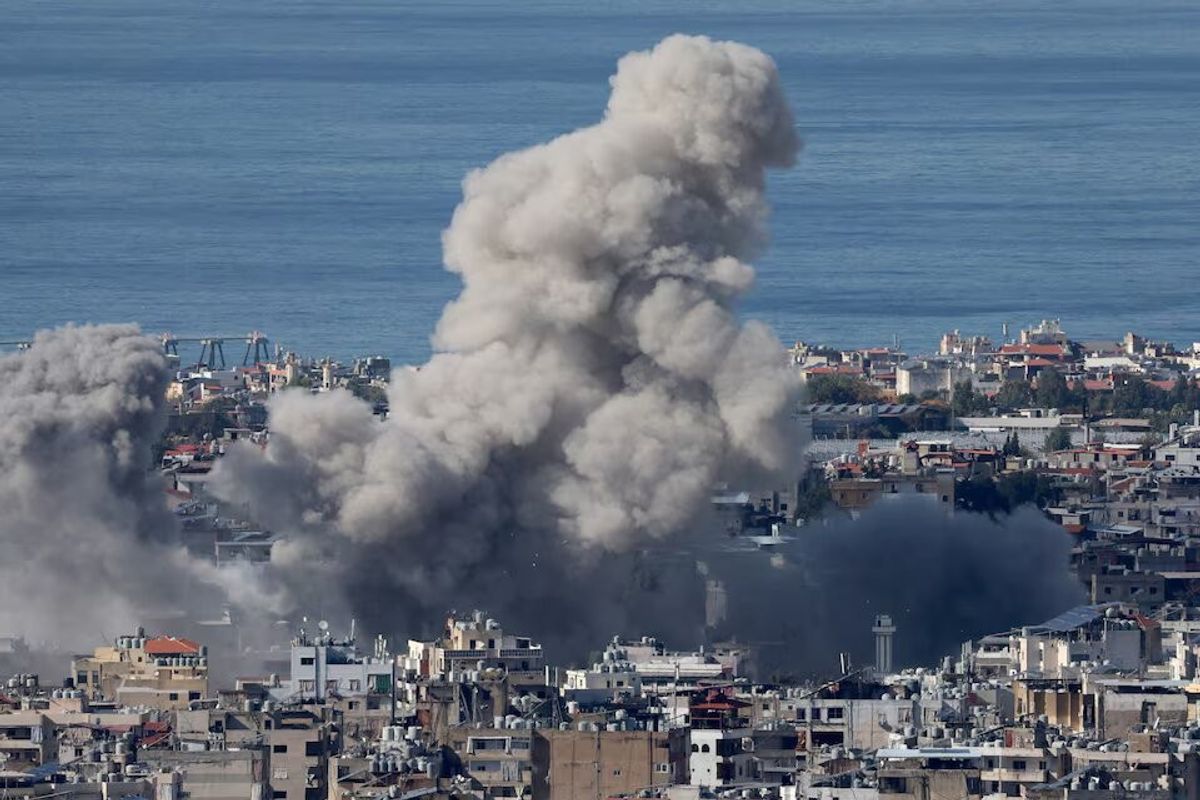
Smoke billows over Beirut's southern suburbs, after an Israeli strike, amid the ongoing hostilities between Hezbollah and Israeli forces, as seen from Baabda, Lebanon, November 26, 2024.
Reuters
Ceasefire terms involve troop withdrawals and reduced Hezbollah presence near the border.
Over 3,750 lives lost and millions displaced during the year-long conflict.
Israel launched waves of airstrikes in Beirut on Tuesday as its security cabinet met to discuss a ceasefire deal with Hezbollah that could take effect as early as Wednesday.
A senior Israeli official and Lebanese Foreign Minister Abdallah Bou Habib expressed optimism about reaching a deal to end a conflict that has killed thousands since it began during the Gaza war last year.
Despite the prospect of a diplomatic breakthrough, hostilities continued. Israel escalated its campaign with airstrikes in Beirut and other parts of Lebanon.
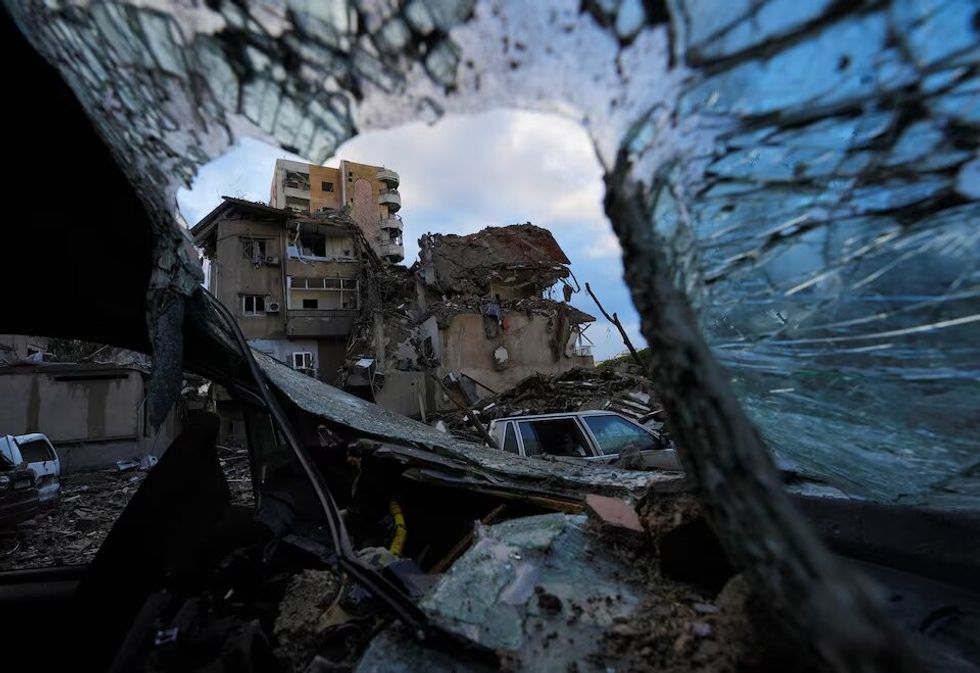
Hassan Fadlallah, a Hezbollah parliament member, said Lebanon faced “dangerous, sensitive hours” as a ceasefire announcement was awaited.
The Israeli security cabinet met Tuesday evening to discuss the deal, which a senior official indicated was likely to pass. Prime Minister Benjamin Netanyahu was expected to address the nation at 8 p.m. local time (1800 GMT).
Israeli approval could pave the way for a ceasefire declaration by U.S. President Joe Biden and French President Emmanuel Macron, according to four senior Lebanese sources. The agreement could trigger a 60-day truce starting Wednesday, a Western diplomat said.
The ceasefire requires Israeli troops to withdraw from southern Lebanon, while the Lebanese army would deploy in the region. Hezbollah would cease its armed presence south of the Litani River.
Bou Habib stated the Lebanese army could deploy at least 5,000 troops in southern Lebanon as Israeli forces withdraw. He added that the United States could assist in rebuilding infrastructure damaged by Israeli strikes.
Defense Minister Israel Katz said Israel demands effective U.N. enforcement of the ceasefire and will show “zero tolerance” for violations.
Escalation in Beirut
Israeli warplanes carried out numerous strikes in Beirut on Tuesday, targeting southern suburbs considered Hezbollah strongholds.
In one cluster of strikes in Beirut, Israel’s military said 20 targets were hit in 120 seconds, killing at least seven people and injuring 37, according to Lebanon’s health ministry.
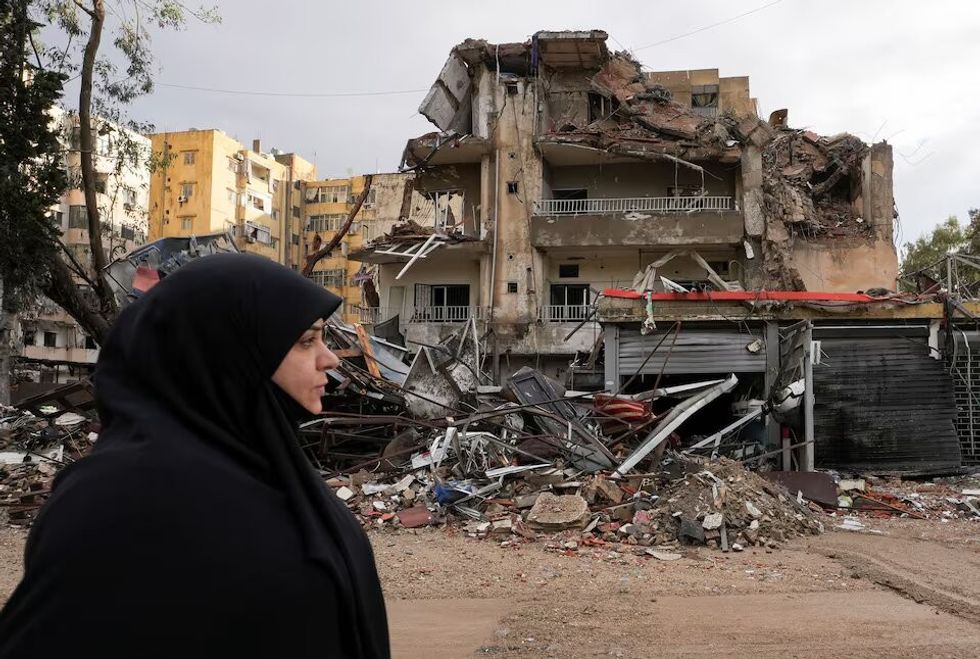
For the first time, Israel gave advance notice of strikes in central Beirut, escalating its campaign and prompting panic among residents, with some fleeing north. Strikes also hit Tyre in the south and Baalbek in the east.
Israeli military spokesperson Avichay Adraee said the air force conducted a “widespread attack” on Hezbollah targets across the city.
Hezbollah continued firing rockets into Israel, previously warning it would retaliate against attacks on central Beirut by targeting Tel Aviv. Sirens sounded in northern Israel, and the Israeli military reported five projectiles launched from Lebanon.
Hezbollah fired around 250 rockets Sunday in one of its heaviest barrages, and the northern Israeli city of Nahariya faced more rocket fire overnight.
‘Missiles Are Chasing Us’
Israel has inflicted significant losses on Hezbollah since September, including the killing of its leader, Sayyed Hassan Nasrallah, and other commanders.
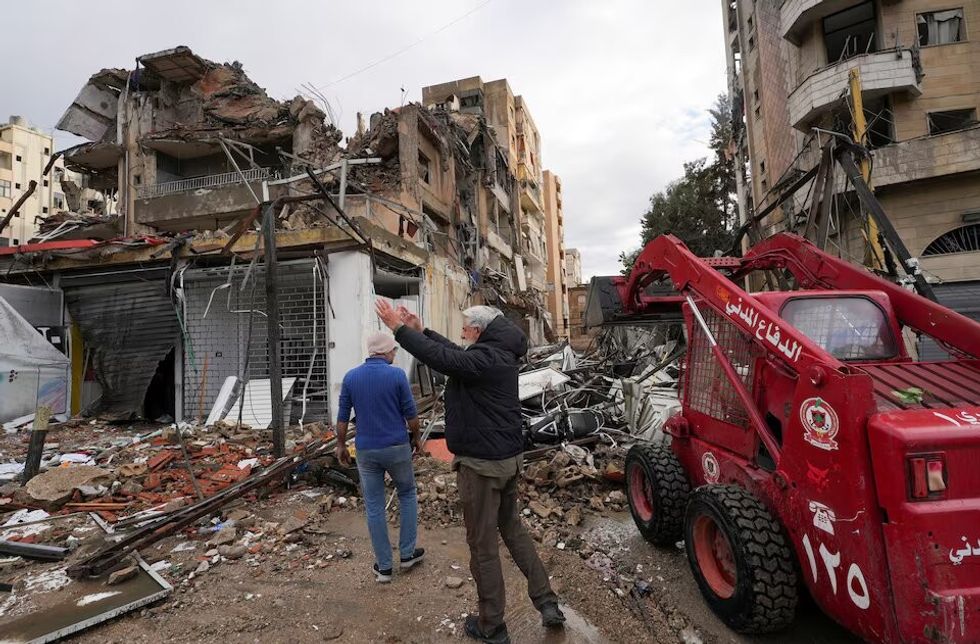
“Regarding the ceasefire, I think it will be implemented. Both sides are tired,” said Selim Ayoub, a mechanic from Beirut’s southern suburbs.
Diplomatic efforts focus on restoring a ceasefire based on U.N. Security Council Resolution 1701, which ended the last major war between Hezbollah and Israel in 2006.
Israel’s U.N. ambassador, Danny Danon, said Monday that Israel would maintain the ability to strike southern Lebanon under any agreement. Lebanese officials object to such provisions, saying they are not part of the draft proposal.
Two Israeli officials said Israel has a side agreement with the U.S. permitting action in Lebanon against “imminent threats.”
Death Toll and Displacement
Israeli Deputy Foreign Minister Sharren Haskel said while Israel could undertake more missions to dismantle Hezbollah, it preferred a diplomatic solution.
Over 3,750 people have been killed in Lebanon, with more than 1 million displaced, according to Lebanon’s health ministry.
A ceasefire would allow 60,000 evacuees to return to northern Israel, which Hezbollah began targeting with rockets after Hamas launched its Oct. 7, 2023, attack on Israel.
Israel maintains it targets military objectives in Lebanon and Gaza while taking measures to avoid civilian casualties. It accuses Hezbollah and Hamas of hiding among civilians, which both groups deny.





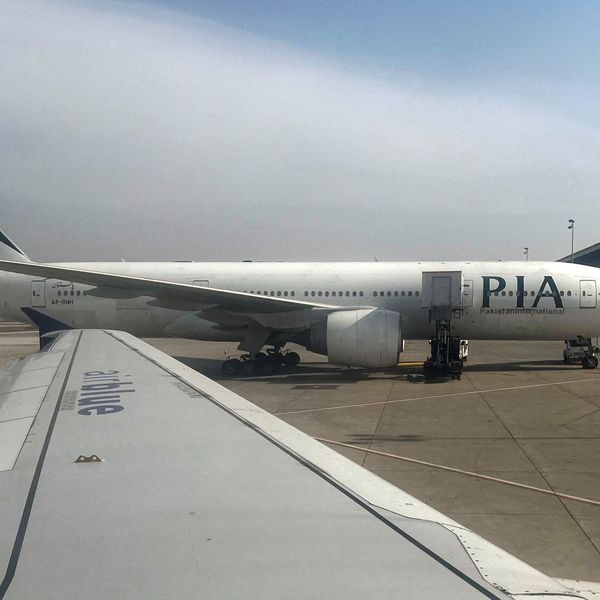

Comments
See what people are discussing